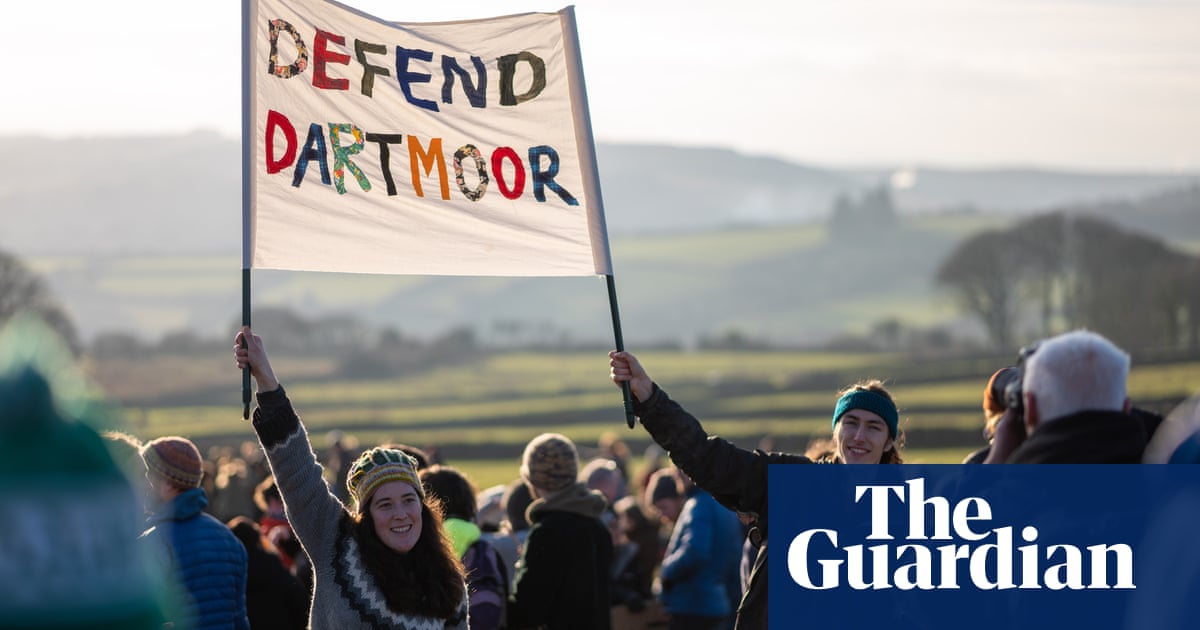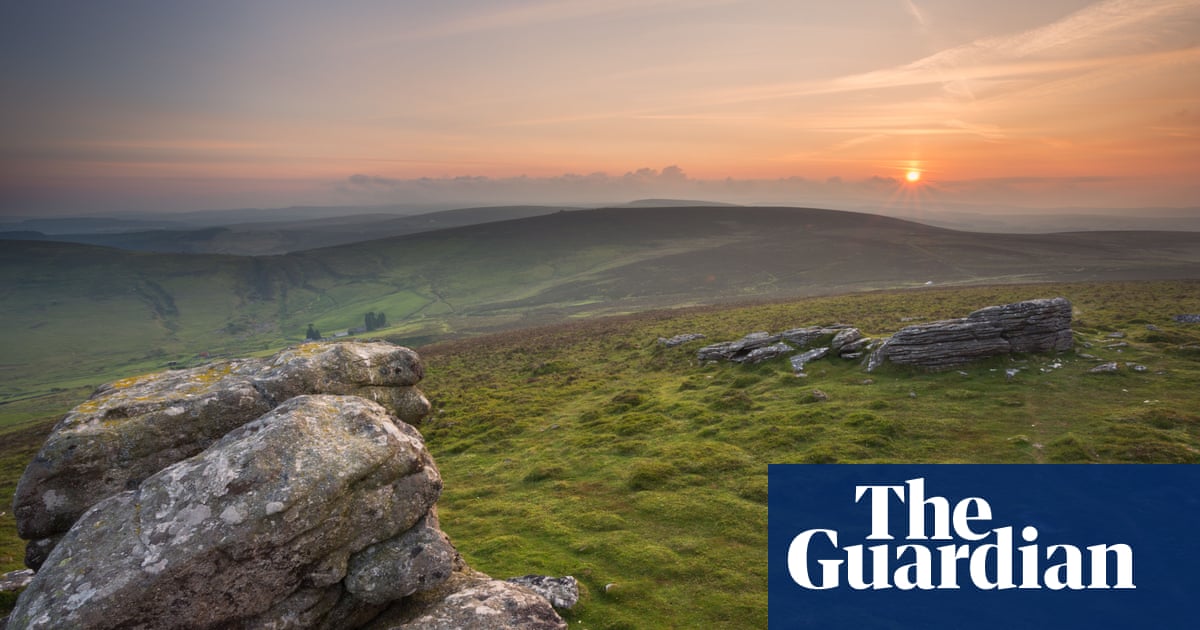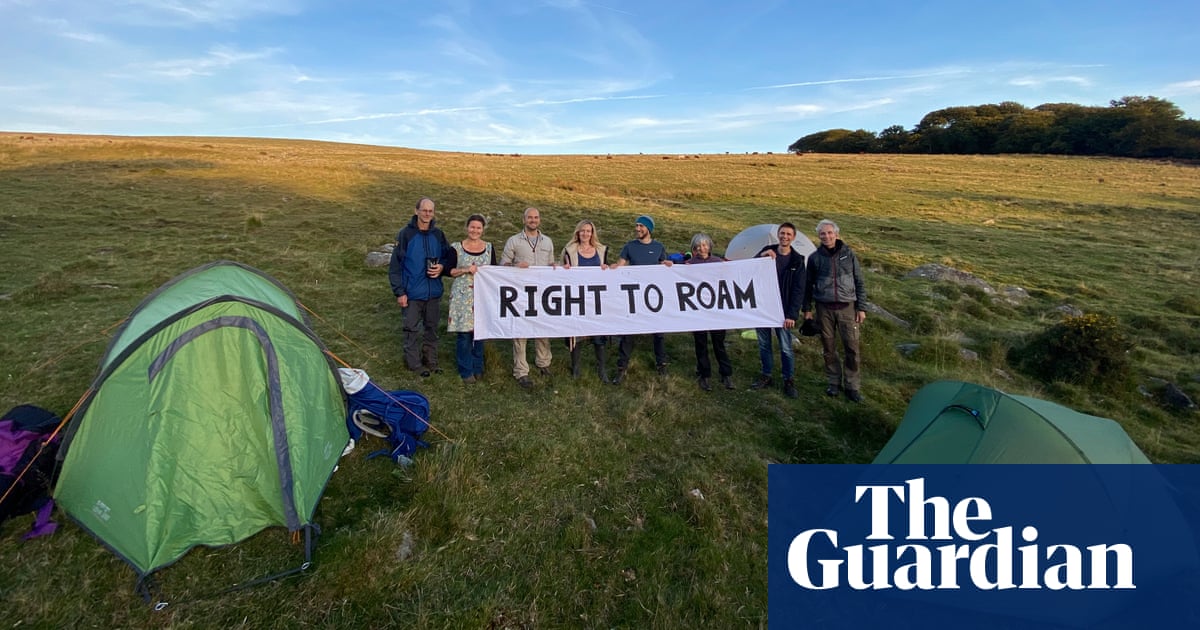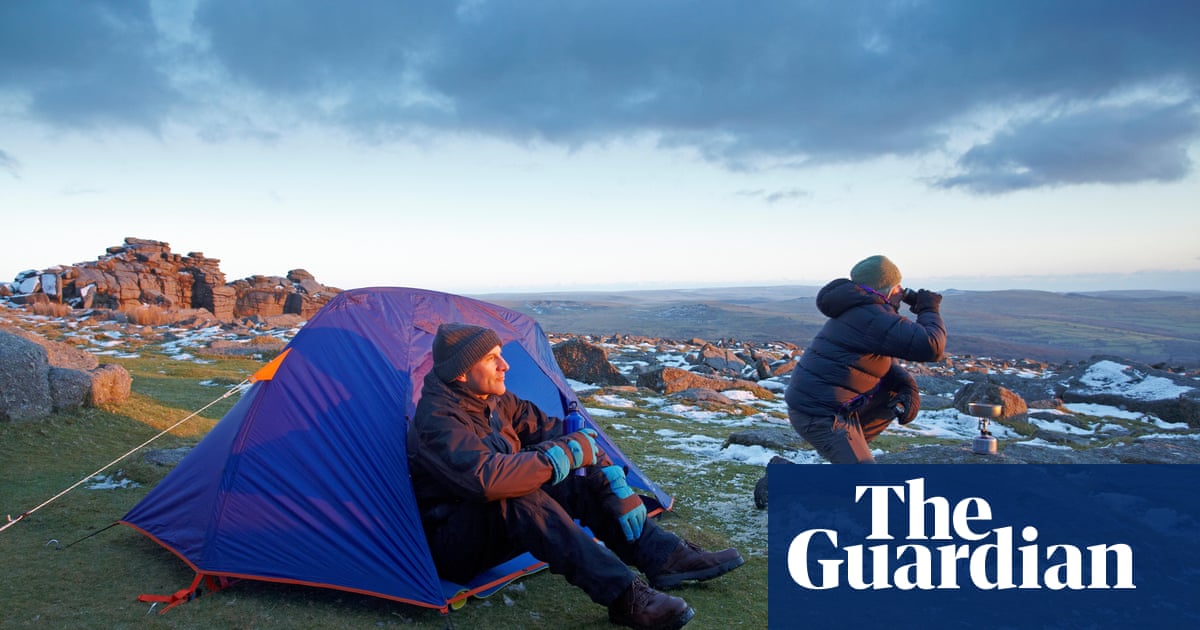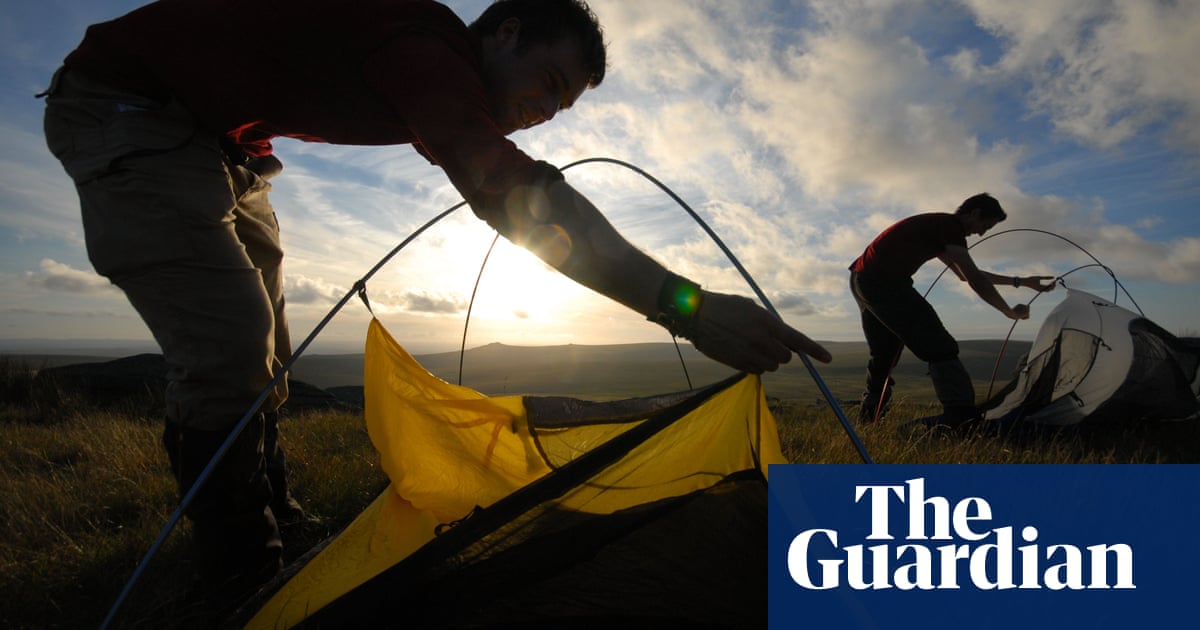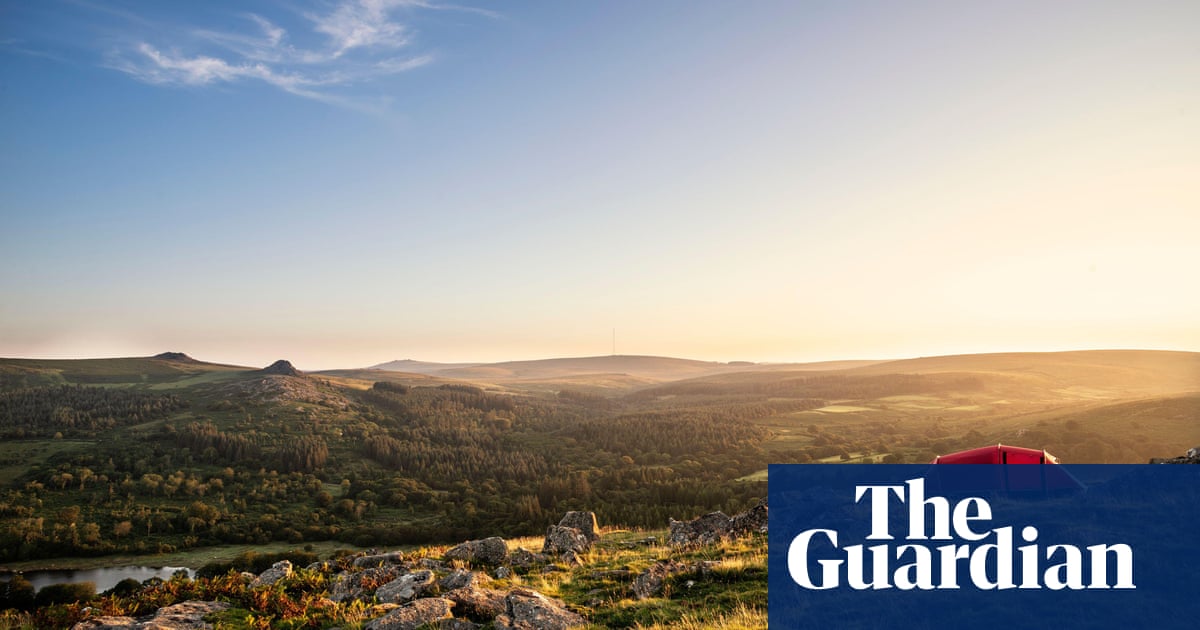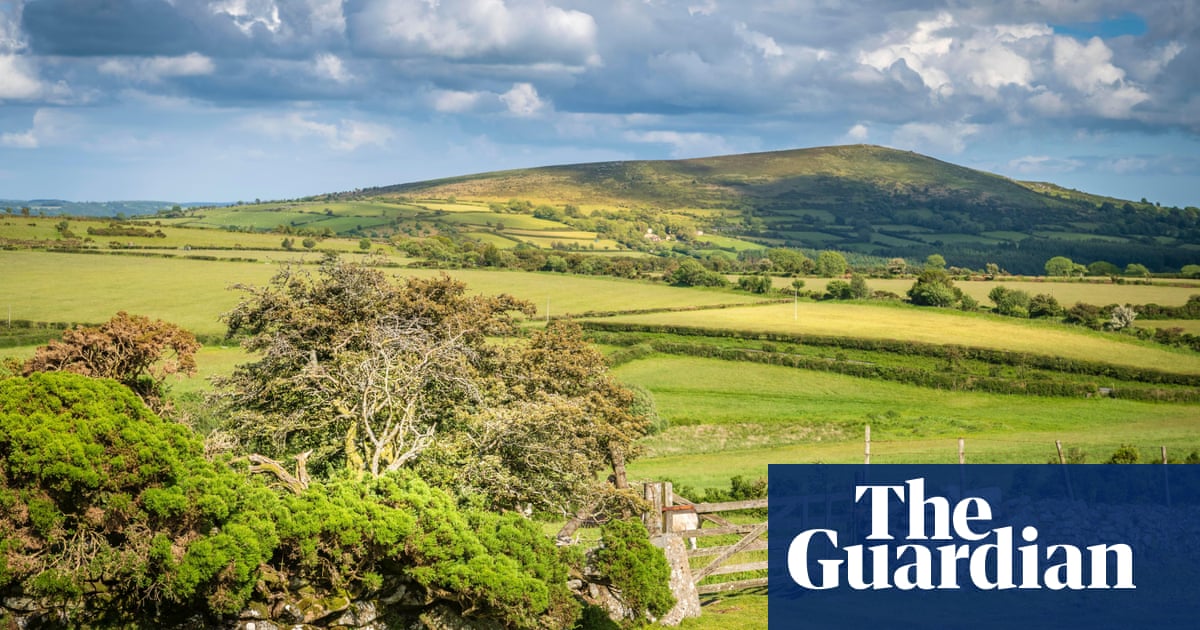
The right to wild camp on Dartmoor could be under threat again after the supreme court granted permission for a wealthy landowner to bring a case against it.
Last year, the Dartmoor National Park Authority won an appeal against a decision to ban wild camping on the moors.
Camping had been assumed to be allowed under the Dartmoor Commons Act since 1985, until a judge ruled otherwise last January. It was the only place in England that such an activity was allowed without requiring permission from a landowner.
The case hinged on whether wild camping counted as open-air recreation, leading to a long debate in the court of appeal. Lawyers acting for Alexander Darwall, the landowner, argued it was not, because when camping one was only sleeping rather than enjoying a particular activity.
After the court of appeal decision, lawyers acting for Darwall, a hedge funder and Dartmoor’s sixth-largest landowner, asked the supreme court to hear the case.
Darwall bought the 1,619-hectare (4,000-acre) Blachford estate on southern Dartmoor in 2013. He offers pheasant shoots, deerstalking and holiday rentals on his land.
His attempts to ban wild campers from using his estate without his permission sparked a large protest movement, with thousands going to Dartmoor to assert their right to camp. It awakened a land rights debate in the UK, with the Labour party weighing in. The party previously said it would legislate for a right to wild camp in all national parks. However, it since appears to have U-turned on its land rights policy.
Lewis Winks, from the Stars Are For Everyone campaign, said: “The loss of our cherished right to sleep under the stars on Dartmoor ignited a passionate and broad movement for greater land rights in England. This news is confirmation that reform is both needed and inevitable, and will act as a clarion call to all those who wish for generations to come to enjoy these fundamental freedoms.
“As ever, the right to wild camp is emblematic of the fragility of our wider rights in the English countryside, and Darwall’s latest egregious move illustrates the need for greater legal protections for access to nature.
“We hope that the court sees sense and returns a favourable verdict, enabling wild camping to continue on the commons of Dartmoor.”
Darwall’s legal team at Landmark Chambers said that the high court held that the words in the act “unambiguously excluded a right to camp on Dartmoor” and found in favour of the landowners. The court of appeal held that it “unambiguously included a right to camp” and allowed the Dartmoor National Park Authority’s appeal. “The appeal to the supreme court will determine once and for all this important issue, namely whether members of the public enjoy a right to camp on the Dartmoor commons,” it said.
“The supreme court will be asked to consider a number of principles applicable to statutory interpretation which will be of interest to practitioners. In particular, it will be invited to consider whether the court of appeal took sufficient account of admissible ‘background’ materials (i) in identifying the ‘mischief’ at which the legislation was aimed and (ii) in considering whether the statutory language was ambiguous.”





